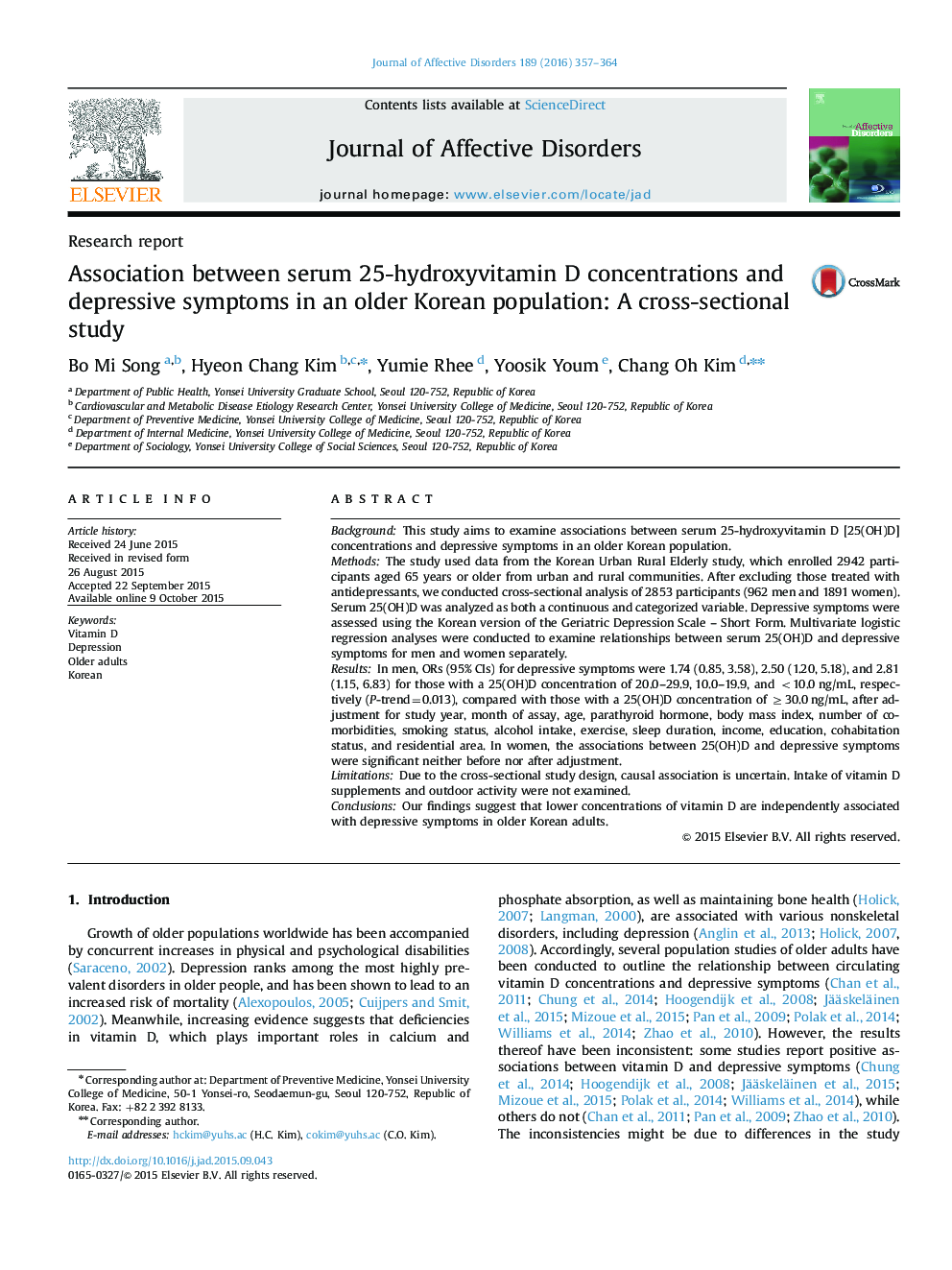| Article ID | Journal | Published Year | Pages | File Type |
|---|---|---|---|---|
| 6230936 | Journal of Affective Disorders | 2016 | 8 Pages |
â¢The study participants comprised Koreans of older age.â¢Serum 25-hydroxyvitamin D was measured as an indicator of vitamin D.â¢Depressive symptoms were assessed using the Geriatric Depression Scale -Short Form.â¢Vitamin D was found to be independently associated with depressive symptoms in older Koreans.
BackgroundThis study aims to examine associations between serum 25-hydroxyvitamin D [25(OH)D] concentrations and depressive symptoms in an older Korean population.MethodsThe study used data from the Korean Urban Rural Elderly study, which enrolled 2942 participants aged 65 years or older from urban and rural communities. After excluding those treated with antidepressants, we conducted cross-sectional analysis of 2853 participants (962 men and 1891 women). Serum 25(OH)D was analyzed as both a continuous and categorized variable. Depressive symptoms were assessed using the Korean version of the Geriatric Depression Scale - Short Form. Multivariate logistic regression analyses were conducted to examine relationships between serum 25(OH)D and depressive symptoms for men and women separately.ResultsIn men, ORs (95% CIs) for depressive symptoms were 1.74 (0.85, 3.58), 2.50 (1.20, 5.18), and 2.81 (1.15, 6.83) for those with a 25(OH)D concentration of 20.0-29.9, 10.0-19.9, and <10.0 ng/mL, respectively (P-trend=0.013), compared with those with a 25(OH)D concentration of â¥30.0 ng/mL, after adjustment for study year, month of assay, age, parathyroid hormone, body mass index, number of comorbidities, smoking status, alcohol intake, exercise, sleep duration, income, education, cohabitation status, and residential area. In women, the associations between 25(OH)D and depressive symptoms were significant neither before nor after adjustment.LimitationsDue to the cross-sectional study design, causal association is uncertain. Intake of vitamin D supplements and outdoor activity were not examined.ConclusionsOur findings suggest that lower concentrations of vitamin D are independently associated with depressive symptoms in older Korean adults.
